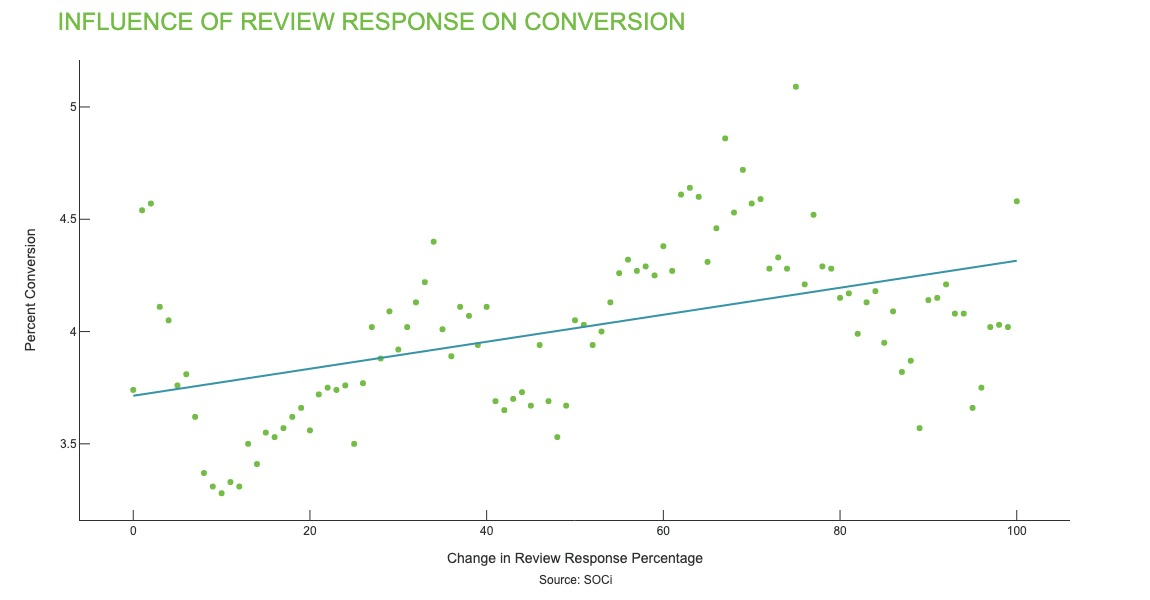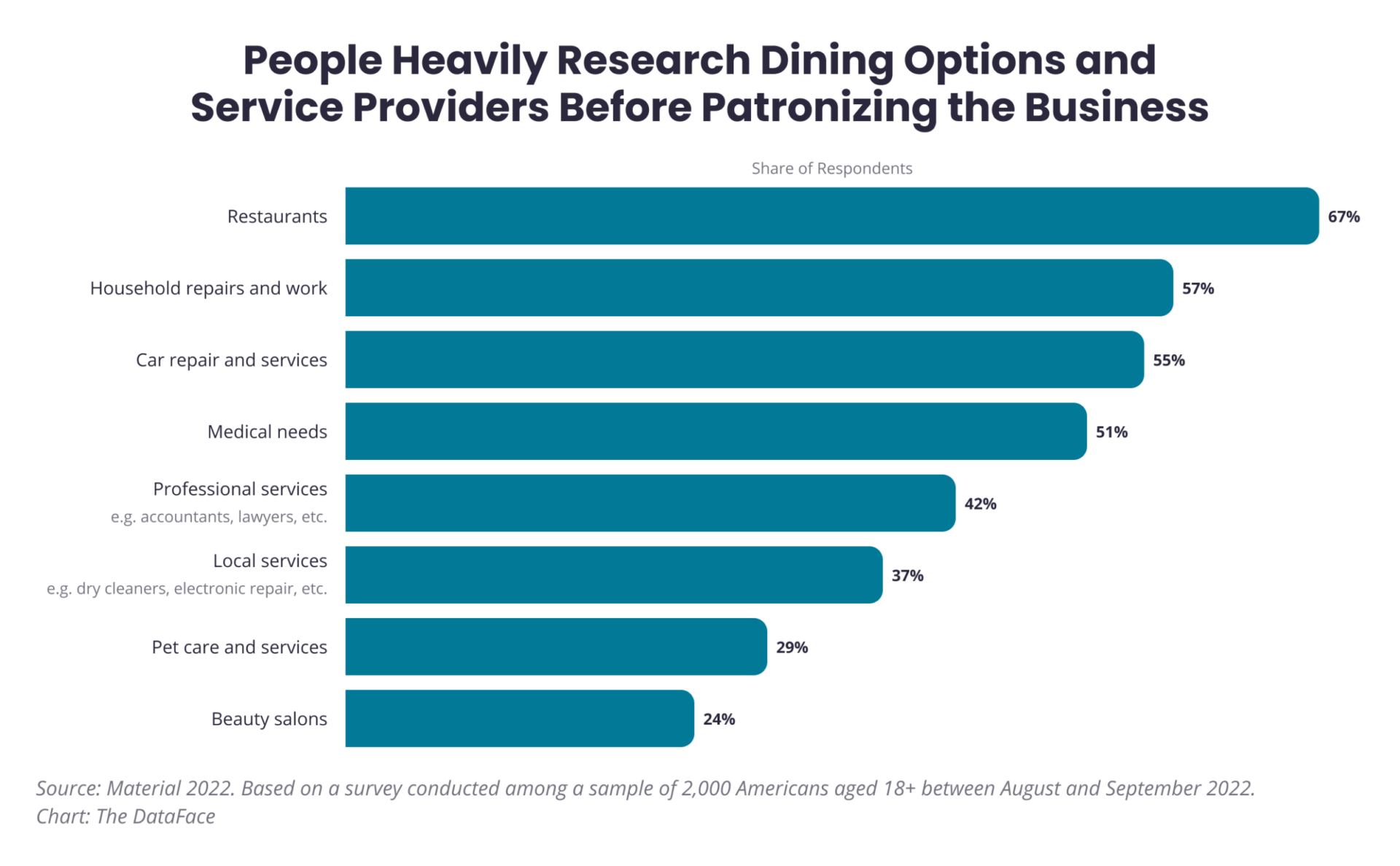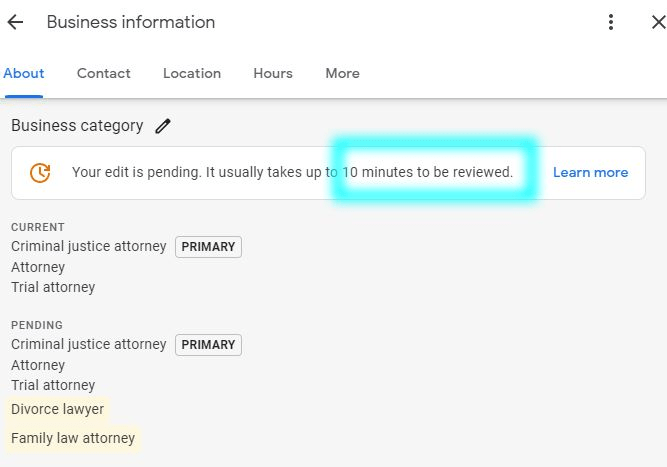Local Memo: Google Search Console Drops Page Experience Report, Adds Recommendations
Local Memo: Black Friday Sets New Record at $9 Billion

Local Memo: Black Friday Sets New Record at $9 Billion
In this week’s update, learn about a new Black Friday spending record; SOCi’s study showing the influence of reviews on conversion; Yelp’s survey on reviews and consumer trust; Google’s lawsuit against a business guaranteeing page one rankings; a new GBP feature showing time to edit approval; and the impressive launch of OpenAI’s ChatGPT.Black Friday Sets New Record at $9 Billion
Adobe Analytics reports that Black Friday spending set a new record this year at $9 billion, up 2.3% from 2021. Given that November was an otherwise flat month for sales, the Black Friday boost suggests that consumers are willing to spend money during the economic downturn, but are especially motivated to find deals. Many consumers took advantage of early sales as well, with $5.29 billion in spending occurring on Thanksgiving Day, up 2.9% from last year. Nearly half of online sales during Black Friday were conducted via smartphones. In another sign of the determination to shop despite economic difficulties, the popularity of Buy Now Pay Later (BNPL) programs grew by 78% in order volume and 81% in order value over last year. In total, consumers spent about $78 billion in November, with toys, gaming, and consumer electronics taking the top category positions.SOCi Study Shows the Influence of Reviews on Conversion
SOCi’s new State of Google Reviews study shows the influence of reviews on the likelihood that a consumer will choose a business among the available alternatives. Specifically, the study looks at the influence of star rating, review count, and review response rate on conversion, which is defined as the percentage of Google searches surfacing a business listing that result in an action such as a phone call, website click, or request for directions. The study finds that increases in all three metrics correspond to increased likelihood of a consumer choosing that business. Conversion rate improves by 2.8% for every 10 new reviews earned by the business, and by 4.4% for every 0.1 star increase in the business’s average rating. A business that responds to 100% of its reviews, compared with none, will gain a conversion advantage of 16.4%. These findings and more will be discussed in a webinar on Wednesday, December 7.
85% Trust Review Text Over Ratings, According to Yelp
A new Yelp survey finds that 85% of consumers who read online reviews trust review text over ratings. (Yelp requires that reviewers include text comments in their reviews; Google does not.) Most consumers say they read about five reviews before deciding on a business, and 77% say they’re reading reviews more now than ever before. Respondents cited restaurants, household repairs, car repair, and medical needs as the categories where reviews are the most important. Consumers are looking for authenticity in the reviews they read, with 71% saying they would not visit a business with fake or compensated reviews. Still, some 83% of consumers say they trust reviews of local businesses in general. Yelp points out that 79% of consumers want to see all reviews left for a business, even if some of them are inauthentic, touting its own practice of relegating filtered reviews to a “not recommended” page but not removing them entirely.
Courtesy Yelp
Google Sues Business Offering Page One Ranking and Fake Reviews
Google has filed a lawsuit against G Verifier, a company based in Ohio that is alleged to have offered page one ranking as well as fake reviews to local businesses, and to have promoted its services with threatening and misleading claims. Google alleges that the company threatened business owners with removal of their listings from Google Maps if the business refused to pay for the company’s services. In addition to offering a guarantee of page one rankings that Google says is fraudulent, G Verifier is also alleged to have offered fake reviews published via virtual private networks in order to mask their geographic origin. Google says it has received “hundreds and hundreds” of complaints about the company.Google Showing Time to Process Profile Edits
For some users of the new Search interface for Google Business Profiles, also known as the New Merchant Experience, Google is now showcasing an approximate time for profile edits to be approved. The times differ from 10 minutes to one day to, in one case, 30 days, according to examples shared on Twitter by Colan Nielsen and others. Given that the notices appear as soon as the edit is submitted, it appears that Google is making use of historical data to estimate the time for verification. The vast difference in timeframes also suggests that in the backend, Google categorizes different edits very differently, perhaps based on the business category, age of the profile, and type of edit being performed.
Courtesy Colan Nielsen
ChatGPT Takes AI to the Next Level
As you probably already know if you frequent just about any social network, OpenAI, the company behind the DALL-E image generator, has released a public interface called ChatGPT that shows remarkable improvement from previous models of text-based artificial intelligence. Seemingly capable of answering just about any question in plainspoken English, the free tool has amazed users in the last several days by penning articles and essays, sharing recipes, interpreting historical events, and writing song lyrics. Some users have focused their attention on breaking OpenAI’s restrictions on the chatbot’s capabilities, by tricking it into sharing advice on illegal activities or espousing Nazi ideology. But the tool has so far proven that AI is highly capable of retrieving information in a manner that could prove useful, dangerous, or both. In the local SEO community, several users such as Mike Blumenthal have shared ChatGPT’s very reasonable responses to questions such as “Should a business incentivize reviews on Google?” The release of ChatGPT has already accelerated conversations about the use of AI in our industry and many others, so stay tuned.ChatGPT on whether a business should incentivize reviews on Google: pic.twitter.com/VqjJdZZAoy
— Mike Blumenthal (@mblumenthal) December 2, 2022
Subscribe to Local Memo!
Signup to receive Local memo updates and the latest on localized marketing, delivered weekly to your inbox.







